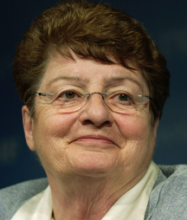You are here
The Bretton Woods credibility crisis
Oct 12,2021 - Last updated at Oct 12,2021
WASHINGTON, DC — Despite setbacks like the Great Recession and the COVID-19 pandemic, the world economy has had a massively successful run since World War II. That success was underpinned by the post-war global economic system and its central institutions: The International Monetary Fund (IMF), the World Bank, and the World Trade Organisation (previously the General Agreement on Tariffs and Trade). In joining the Bretton Woods institutions, countries around the world agreed to subject their economic behaviour to an international rule of law.
These institutions all have governing bodies with representatives from member states, as well as highly qualified technocratic staff to carry out their work. The periodic reports they produce have been essential sources of information and analyses. But one of these reports, the World Bank’s annual Doing Business index, has become the source of enormous controversy.
The point of Doing Business was to report on each member state’s regulatory environment, elements of which include legal procedures, wait times, start-up costs, the efficiency of the judicial system, and the accessibility and reliability of basic utilities like electricity. These and many other factors determined each country’s overall ranking. In the 2018 report, for example, New Zealand ranked highest, and Somalia the lowest.
While no measure is perfect, the procedure for determining the rankings was transparent, and the indicators in each report were as objective as possible, even if they did rely also on anecdotal evidence. The Doing Business reports were highly respected and thus widely used, not only by national policymakers as an indication of how their country’s regulations and performance compared with others’, but also by independent researchers and firms and financial institutions contemplating investments abroad. It was not uncommon for a head of government to instruct his ministers to pursue policies geared toward climbing the rankings.
Many observers, including me, regarded the Doing Business reports as the World Bank’s single most important publication. The Bank published the individual results alongside the overall ranking, so anyone who questioned the weights could apply her own. While some governments instituted Potemkin reforms — all façade and no substance — there were many more instances of Doing Business-inspired policies that reduced costs and increased productivity. As with all publications from international economic institutions, Doing Business’s credibility was the key to its success.
But following the 2018 report, there were complaints about the data that had been used, leading the World Bank to commission the highly regarded law firm WilmerHale to investigate. Its report, issued last month, found serious irregularities with respect to China’s ranking in the 2018 report. The investigators report that Kristalina Georgieva, the Bank’s then-CEO (second in command) who has since become managing director of the IMF, urged staff to reconsider the results for China, and then “explored... ways to change the methodology to raise China’s ranking.” The report also points out that the Bank had an interest in placating China, because it was seeking Chinese support for a capital increase at the time.
All told, the investigators provided sufficient evidence of Georgieva’s involvement to raise serious doubts about Doing Business’s credibility and integrity. The current president of the World Bank, David Malpass, has suspended publication of the 2021 report and discontinued future ones. The Bank will surely examine and amend its procedures to prevent similar efforts at manipulation in the future.
Credibility is essential for the critical work the IMF and World Bank do. Both employ highly respected researchers, world-class economists and statisticians, and dedicated officials. They know they are civil servants and not politicians; all are highly committed to their jobs. True, in some cases (some of which are known to me), there has been pressure at the political level to support a certain lending programme or policy position. But a central part of the leadership’s job is to shield staff from undue interference in their reports and analyses.
Attempting to massage the ranking for one country in a cross-country report is egregious not only because it undermines the credibility of the report but also because it harms the other countries whose rankings are changed as a result. When a country falls in the rankings, its ability to attract foreign investors and businesses can be diminished.
Like Caesar’s wife, IMF and World Bank leaders must be well above suspicion in overseeing these institutions’ work and safeguarding the integrity of the data on which that work relies. Georgieva’s reported actions certainly raise serious doubts about her commitment to the integrity of the data, including in the context of her new role.
If an IMF managing director is thought to be amenable to pressures to alter data and analyses, the credibility of the Fund’s work will be greatly diminished, if it is believed at all. It is one thing for the managing director to urge the Board to approve a programme of questionable merit based on a report providing an honest account of the situation. It is quite another thing to pressure staff to alter the numbers.
Should Georgieva remain in her position, she and her staff will surely be pressured to alter other countries’ data and rankings. And even if they resist, the reports they produce will be suspect. The entire institution’s work will be devalued. That prospect alone should be enough for the IMF’s political masters to find a new managing director whose commitment to the integrity of the work is not in question.
Anne O. Krueger, a former World Bank chief economist and former first deputy managing director of the International Monetary Fund, is senior research professor of International Economics at the Johns Hopkins University School of Advanced International Studies and senior fellow at the Centre for International Development at Stanford University. Copyright: Project Syndicate, 2021. www.project-syndicate.org

- Popular
- Rated
- Commented
Apr 08, 2025
Apr 09, 2025
Newsletter
Get top stories and blog posts emailed to you each day.












